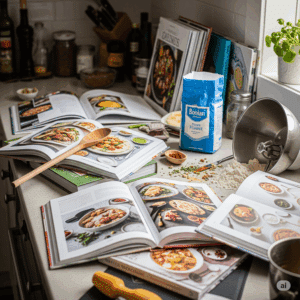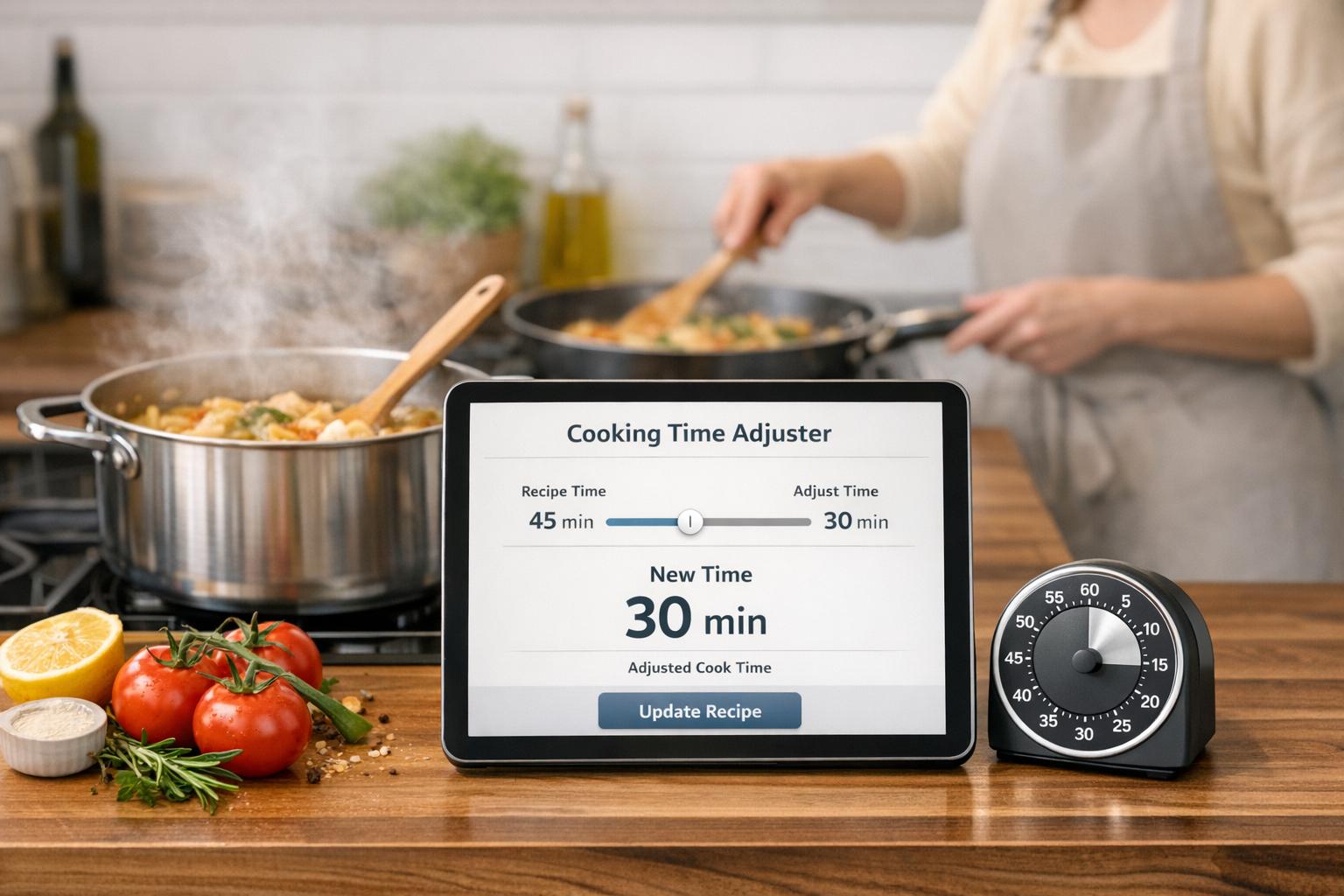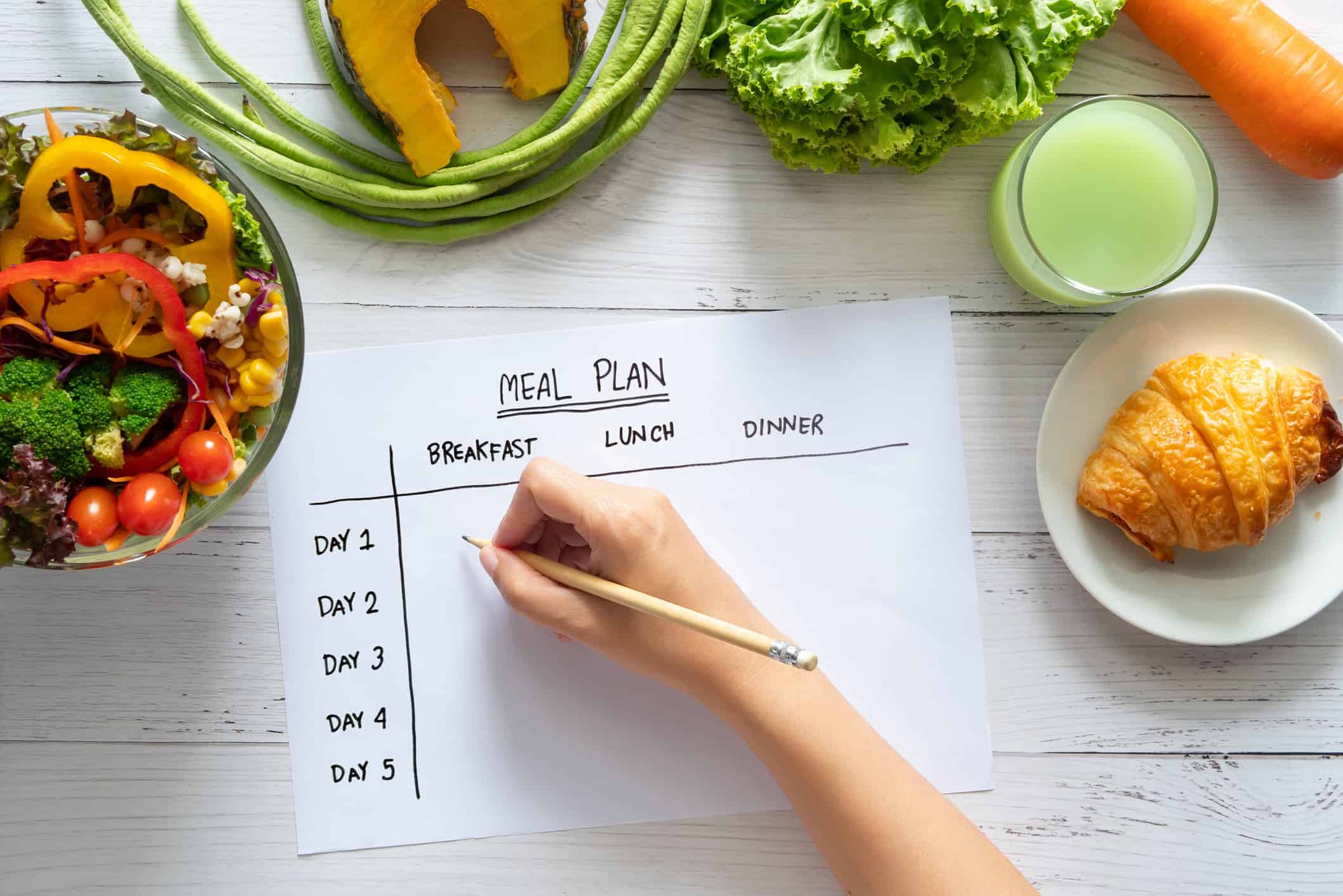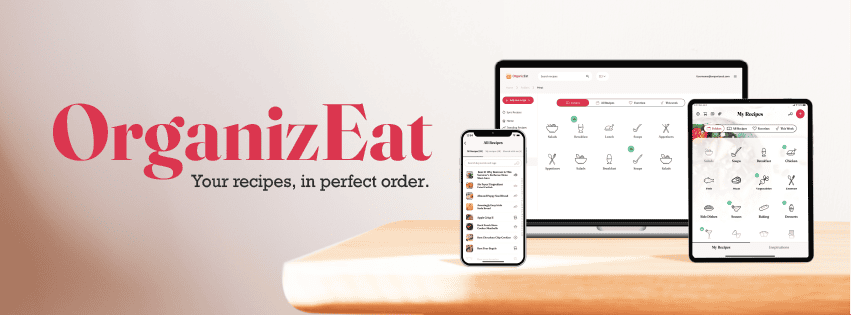Cookbooks multiply when we’re not looking. Between the ones we buy, inherit, and receive as gifts, collections spiral out of control quickly.
An overcrowded cookbook collection makes cooking stressful. When you can’t find the recipe you’re looking for, or when you’re overwhelmed by choices, cooking becomes a chore instead of a joy.
Simple. You don’t have to keep every cookbook that enters your home. There are practical solutions for different types of cookbooks, and here’s exactly what to do with the ones you’re ready to let go of.
Assessing Your Cookbook Collection
Before you decide what to do with your cookbooks, you need to know what you’re working with.
Distinguishing Between Collectors vs. Cooks
There’s a big difference between cookbooks you enjoy looking at and cookbooks you cook from. “Fantasy cookbooks” are those gorgeous coffee table books with stunning photography that make you feel like a master chef just by owning them.
Be honest about your cooking habits. Do you need that advanced French pastry cookbook when you barely have time to make dinner on weeknights? Keep a few inspiring books, but be realistic about what you’ll use.
Evaluating Usage and Value
If you’ve owned a cookbook for more than a year and only use one or two recipes from it, that book is taking up valuable space. Those few recipes could be saved digitally, freeing up room for cookbooks you reach for regularly.
Just like stacks of papers can clutter your desk, an excessive cookbook collection can clutter your kitchen space and make it feel disorganized.
Identify your go-to cookbooks—the ones with food-stained pages and cracked spines. These are the keepers. Everything else should be evaluated with fresh eyes.
Consider your storage space limitations. If you can’t fit your collection in your designated cookbook space, it’s time to make tough decisions.
Historical and Sentimental Value
Once you’ve sorted through your collection, some cookbooks will stand out as having special significance beyond their recipes.
Not all cookbooks are created equal. Some have genuine historical and sentimental value beyond their recipes.
Handwritten notes in your mother’s cookbook margins and community cookbooks from your childhood church aren’t just recipe collections—they’re pieces of history. Community cookbooks capture local food culture and traditions that might otherwise be lost.
If you have unique community cookbooks from your local area, consider reaching out to your local historical society. They often appreciate donations because these materials document how people lived and ate in specific times and places.
Before you donate any cookbook with sentimental value, digitize the important pages first. This preserves handwritten notes and family recipes while clearing physical space in your kitchen.
Donation Options for Unwanted Cookbooks
For most cookbooks that didn’t make the cut, donation is the best option to give them new life.
Traditional Donation Venues
Public libraries accept cookbook donations, though many end up in book sales. Little Free Libraries are perfect for cookbooks—they move quickly since people love discovering new recipes.
Thrift stores like Goodwill, Purple Heart, and church shops work well. Women’s shelters and domestic violence centers welcome cookbook donations as these facilities help people rebuild their lives.
Educational and Specialized Donations
Culinary arts programs and high school Home Economics classes need additional resources. Habitat for Humanity ReStore sells donated items to fund their home-building projects.
Community-Based Giving
Buy Nothing groups and neighborhood Facebook pages are goldmines for finding people who will genuinely appreciate your cookbooks. Social media giveaways work well—post photos and let people claim them. Swap shops and yard sales are reliable options.
Avoiding Common Donation Mistakes
Check cookbook condition for damage like water stains or mildew before donating. Call organizations first to confirm their acceptance guidelines. Be aware that libraries might discard outdated donations rather than adding them to collections.
Selling Your Cookbooks
If you suspect some of your cookbooks might have monetary value, consider selling before donating.
Where to Sell
Start with used bookstores that specialize in cookbooks. Try online platforms like eBay or local marketplace apps. Antique shops might be interested in vintage collections. Don’t forget garage sales and estate sales.
What Has Value
First editions and signed copies have potential value, as do vintage cookbooks from famous chefs. Regional and church community cookbooks can be valuable to collectors who specialize in local food history. Out-of-print specialized cookbooks also have their market.
Alternative Uses for Old Cookbooks
When cookbooks are too damaged to donate or sell, you still have options before throwing them away.
Repurposing Ideas
When cookbooks are too damaged to donate or sell, you still have options before throwing them away.
- Craft projects: Pages work beautifully for collages, decoupage, and scrapbooking backgrounds with their vintage typography and food illustrations.
- Fire starter: Non-glossy pages make excellent kindling for fireplaces or camping trips.
- Gift wrapping: Transform beautiful cookbook pages into unique wrapping paper that’s especially meaningful for fellow food lovers.
- Wall decor: Frame attractive cookbook covers or stunning food photography pages as kitchen art that celebrates culinary history.
A friend of mine got The Wildcrafting Brewer a few years ago. She never used it, but the photos are stunning, so she framed some of them, and now these photos spark joy and decorate her walls:
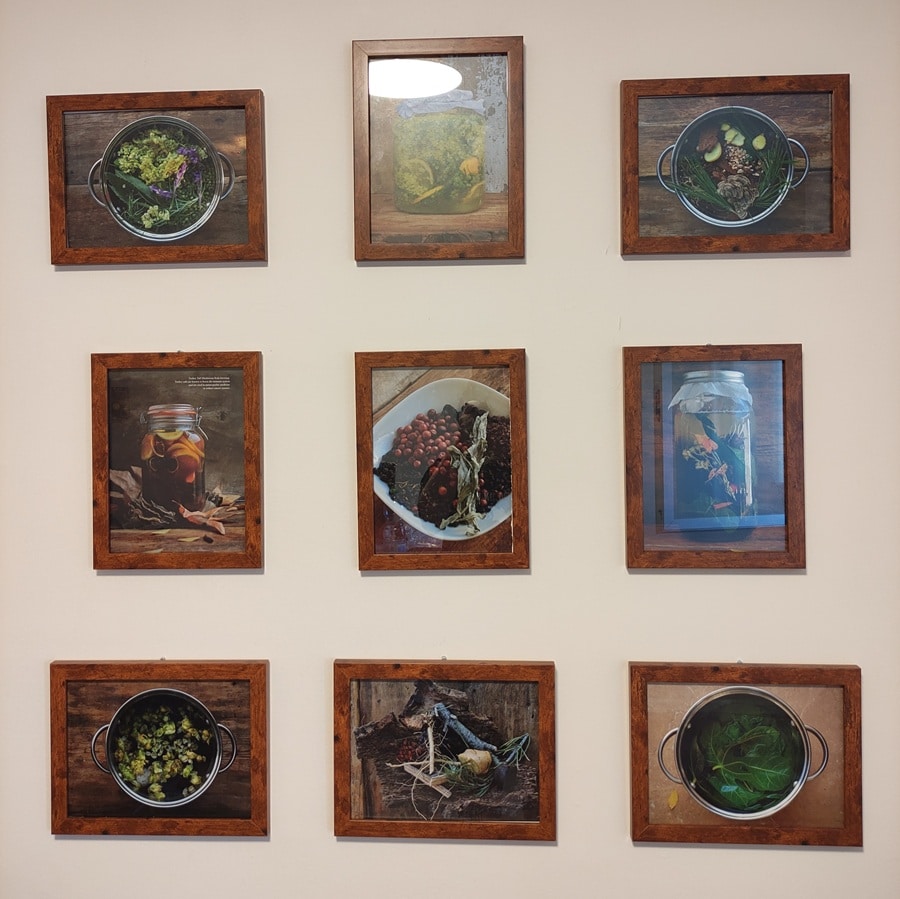
Recycling Considerations
When a cookbook has reached the end of its useful life, recycle it. Check your local recycling guidelines. Avoid recycling water-damaged or brittle pages, as these can contaminate other recyclable materials.
What to Do with the Recipes
Before you let go of any cookbook, make sure you’ve captured the recipes you want to keep. Organizing your recipes as you sort through the books increases the chance of finding and using them later.
Digitizing and Preserving Favorites
Photograph and organize the recipes you use before donating books. You probably only use up to 4-5 recipes from each cookbook anyway, so we’re talking about a rather small scanning project. But freeing up all that shelf space? That’s huge.
Using OrganizEat recipe organizer, you can save recipes from an image so the app keeps the image AND fills in the image to text for a more conveniet reading and cooking experience. This way, you can keep the recipes you want without keeping the entire cookbook.
This approach preserves images exactly as they appear. When you photograph handwritten recipe cards, you still see the original handwriting while having a digital copy that’s backed up and searchable.
Creating Your Own Custom Digital Cookbook
Using OrganizEat, create your own custom cookbook with only the recipes you use. Organize your recipes by cuisine, meal type, dietary needs, or cooking method using tags and categories. Everything syncs across devices for easy access.
Handling Loose Recipes and Magazine Clippings
OrganizEat’s camera feature makes quick work of magazine recipes. Focus on capturing just the recipe, leaving out advertisements. This consolidates recipes from multiple sources into one organized system and eliminates stacks of magazines taking up counter space.
Conclusion
Keep only what you’ll use. A cookbook sitting unused on your shelf isn’t serving anyone. When you donate it to someone who will cook from it, you’re giving that book a second life.
Decluttering your cookbook collection will improve your cooking experience. You’ll spend less time hunting for recipes and more time cooking. Your unused books help others while you create a more organized, functional kitchen space.
With digital solutions like OrganizEat, you don’t have to choose between keeping recipes and clearing space. You get both—a clean, organized kitchen and easy access to all your favorite recipes.
FAQ
Donate to libraries, thrift stores, shelters, or educational programs. Sell if valuable, give away through community groups, or recycle if damaged. Digitize favorite recipes first.
First editions, signed copies, vintage books by famous chefs, and regional/community cookbooks have value. Most regular cookbooks aren’t particularly valuable.
Only if too damaged to donate (water damaged, moldy, falling apart). Most cookbooks in decent condition can find new homes through donation or community sharing.
